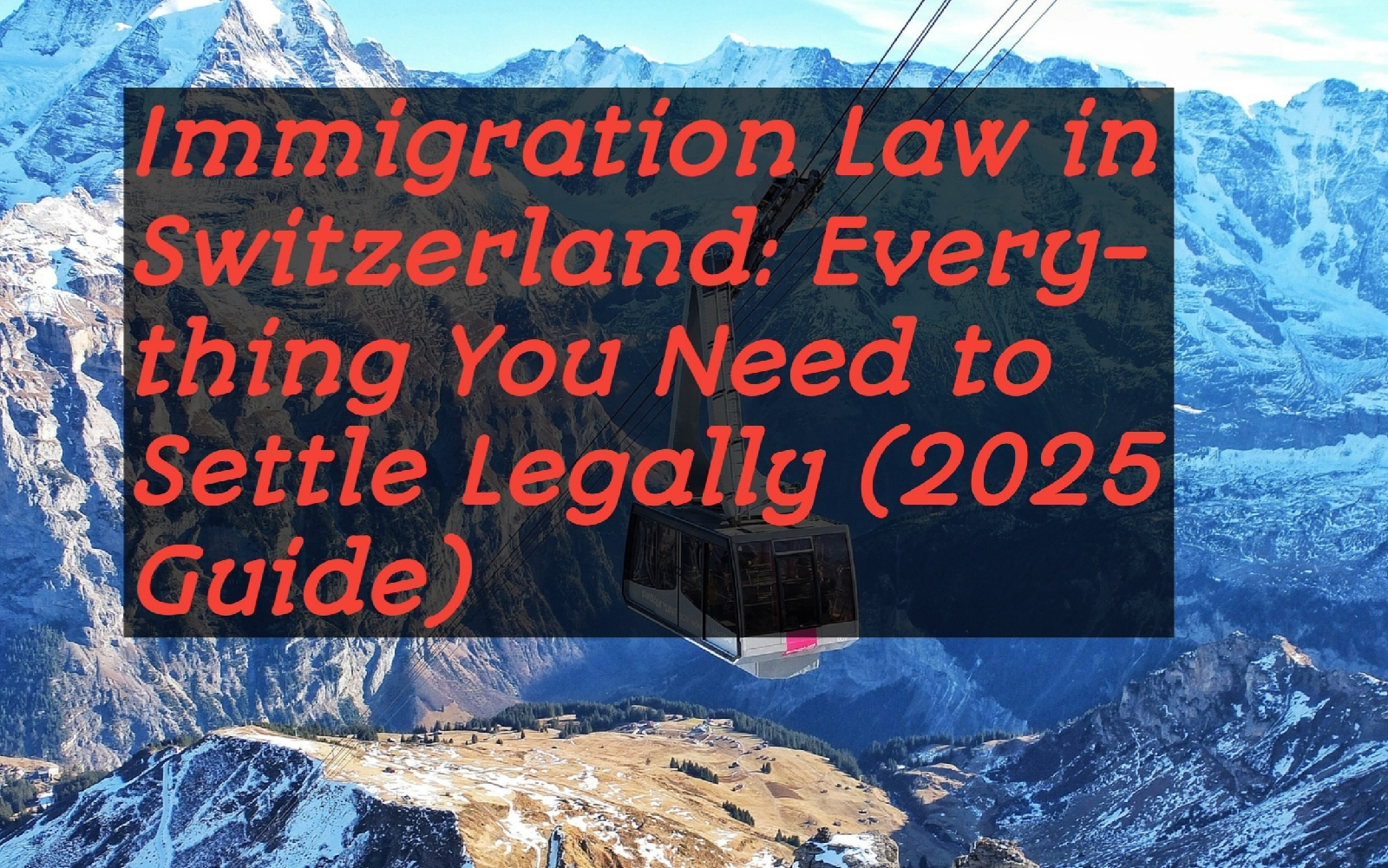Switzerland is one of the most attractive place in the Europe for students, professionals and families who are seeking for a high standard of living, peace , stability and world class healthcare including education. However , the imigration laws of this country are very strict structured and need to take a careful planning.
This guide will help you to understand the types of permit in visa categories, work opportunities and legal procedure to settle in Switzerland in 2025.
1. Who needs a visa to enter Switzerland.
If you are a non-EU or EFTA citizens then you definitely need a visa or residence permit to enter and stay in Switzerland for longer than 90 days.
There is two type of stays (1) Short Stays and (2) Longer stays.
A. SHORT STAYS
It is available for upto 90 days. To avail it, you need to require a Schengen Visa (Type C) for tour, Business or Short-term visit.
B. LONGER STAYS
It is available for beyond 90 days. If you want to stay there for longer days, then you need to require a National Visa (Type -D) and a residence permit. You must have to show a reason to stays including work, study, family reunification and long term settlement.
2. Types of Residence Permits in Switzerland
Switzerland uses a system of permit for foreign nationals. We have described some of them in given below.
🔷 Permit L
It is a short term residence permit which is valid to stay upto one year. It can be used for seasonal workers, trainees or temporary assignments. It can be renewed with subject to specific conditions.
🔷Permit B
It is a initial long term Permit which is used for residents who are willing to stay over a year. It is issued for work, study, or family reunification. It is usually valid for one year and can be renewed annually.
🔷Permit C
It is used for permanent residence which is granted after 5 to 10 years of continuous legal residence . It allows full mobility in the Swiss job market. It is no need to renewal and valid for indefinite period of time.
3. Family Reunification: Bringing Your Loved Ones
The country allows family for reunification under specific conditions: Spouses and minor children of residents or citizens can apply it. You must prove of : 1. House to stay 2.Financial stability. 3.Basic knowledge of a national language (German/French/Italian) .
4.Student Visas and Study Permits
Students who are admitted to Swiss universities or institutions . They can apply for a study visa.
Requirements:
1.Proof of admission
2.Financial means for living expenses
3.Accommodation arrangement
4.Willingness to return after graduation
5.Students may work part-time (15 hours/week) during the semester and full- time during holidays with approval
5.Can You Work in Switzerland as a Foreigner?
For EU/EFTA Citizens:
You need a freedom of movement applies.
You can live and work in Switzerland with minimal restrictions.
For Non-EU Citizens:
You must have a job offer from a Swiss employer before applying. Employers must prove the position which couldn't be filled by a Swiss or EU citizen. Priority is most likely given to highly skilled professionals in sectors like IT, healthcare, and engineering.
6. Applying for Swiss Citizenship
There are three ways :
1.Regular Naturalization
You requires 10 years of residence.
Which is included with demonstrate integration:
A. Language proficiency
B.Cultural awareness
C.No criminal record
D.Financial independence
2. Facilitated Naturalization
Your spouses must be a Swiss citizens. It
may take 3–5 years depending on the canton.
3. Birth or Descent
If your parents are Swiss citizens then automatically you will get the citizenship of the country.
7. Common Legal Requirements and Obligations
A. Health insurance is mandatory for all the residents with the arrival of three months .
B. You need Tax registration.
C. You may be checked criminal background during application.
D. You must a National languages.
Conclusion:
The immigration system of the country is fair but selective. With proper direction, you can easily enter into Switzerland. The propose must mentioned during submission of application.
Tags
Finance

